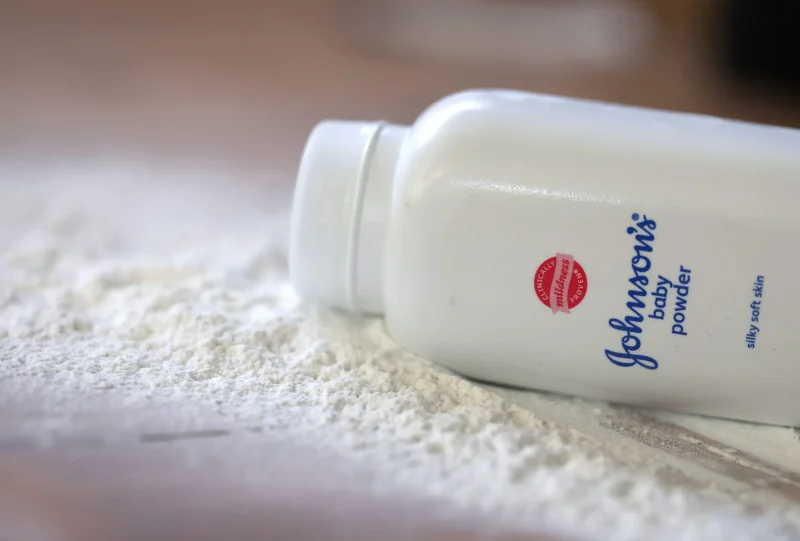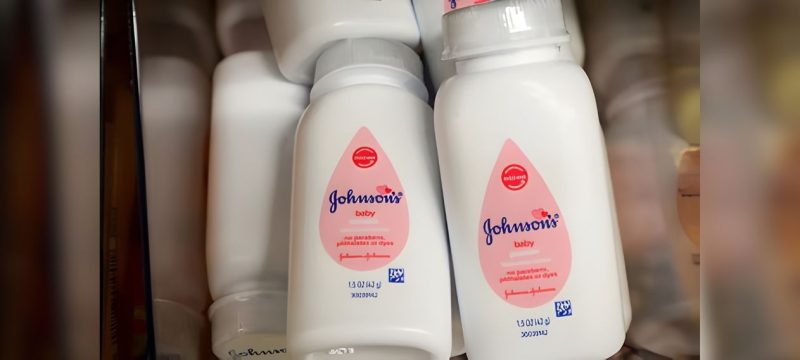London — Pharmaceutical giant Johnson & Johnson is facing a massive lawsuit in the United Kingdom, with over 3,000 claimants accusing the company of knowingly selling asbestos-contaminated baby powder linked to cancer.
The case, filed by KP Law against Johnson & Johnson (J&J) and its subsidiary Kenvue Ltd, alleges that the firm was aware since the 1960s that its mineral-based talcum powder contained fibrous talc, tremolite, and actinolite — minerals classified as asbestos in their fibrous form and directly linked to cancer.
Court documents reviewed by the BBC claim J&J failed to issue any health warnings on its packaging. Instead, the company marketed the product as pure and gentle for babies and mothers worldwide.
In a statement, Johnson & Johnson denied the allegations, saying its talcum powder “was compliant with regulatory standards, did not contain asbestos, and does not cause cancer.” The company ended the sale of talc-based baby powder in the UK in 2023, after discontinuing it in the United States in 2020.
Largest Product Liability Case in UK History?
Lawyers representing the claimants believe that the Johnson & Johnson talcum powder case could become one of the biggest product liability lawsuits in British legal history, with damages potentially reaching hundreds of millions of pounds.
The UK lawsuit mirrors similar cases in the United States, where thousands of victims have won compensation worth billions of dollars. However, J&J has also successfully appealed several of those verdicts.

According to the lawsuit, internal documents from as early as 1973 revealed that J&J’s baby powder contained trace amounts of asbestos. One memo reportedly stated: “Our baby powder contains talc fragments classifiable as fiber… occasionally sub-trace quantities of tremolite or actinolite are identifiable.”
Concealment and Controversy
Another document cited in the case shows executives discussing whether to keep information about asbestos “confidential rather than allow it to be published in patent form.” Critics argue this suggests J&J deliberately concealed potential risks.
The lawsuit also accuses J&J of lobbying the U.S. Food and Drug Administration (FDA) to adopt less sensitive testing standards for asbestos detection — a move that allegedly helped the company maintain its “purity” claims for decades.
Kenvue, J&J’s co-defendant, disputes these interpretations, arguing that several of the cited discussions are being “misrepresented” and taken out of regulatory context.
Victims Speak Out
Among the thousands of UK claimants is Siobhan Ryan, a 63-year-old mother from Somerset, who used the baby powder on herself and her children. Diagnosed with stage 4 ovarian cancer, Ryan said she was devastated to learn of the potential link.
“My mother used it and I used it. It smelt nice and was soft. I thought I was doing my best for my babies,” she told the BBC. “They knew it was contaminated and still sold it to new mums.”
Ovarian cancer specialists emphasize that the disease results from multiple factors but agree that exposure to asbestos fibers can increase the risk.
J&J’s Response and Legal Outlook
In recent U.S. trials, juries have ruled against Johnson & Johnson, including one in Connecticut ordering the firm to pay $25 million to a man diagnosed with mesothelioma linked to talcum powder use.
Despite these verdicts, J&J continues to deny wrongdoing and insists that its product was safe, citing decades of studies from independent labs and regulators worldwide.
The company said: “We sympathize deeply with those suffering from cancer and understand their desire for answers — that’s why facts matter. Our baby powder was tested, compliant, and safe.”
The UK lawsuit now marks another pivotal chapter in a global legal battle that could redefine corporate accountability in the pharmaceutical industry.
In ther news also read about Why Saudi Arabia Is Cracking Down On Tobacco Shops Near Mosques and Schools









